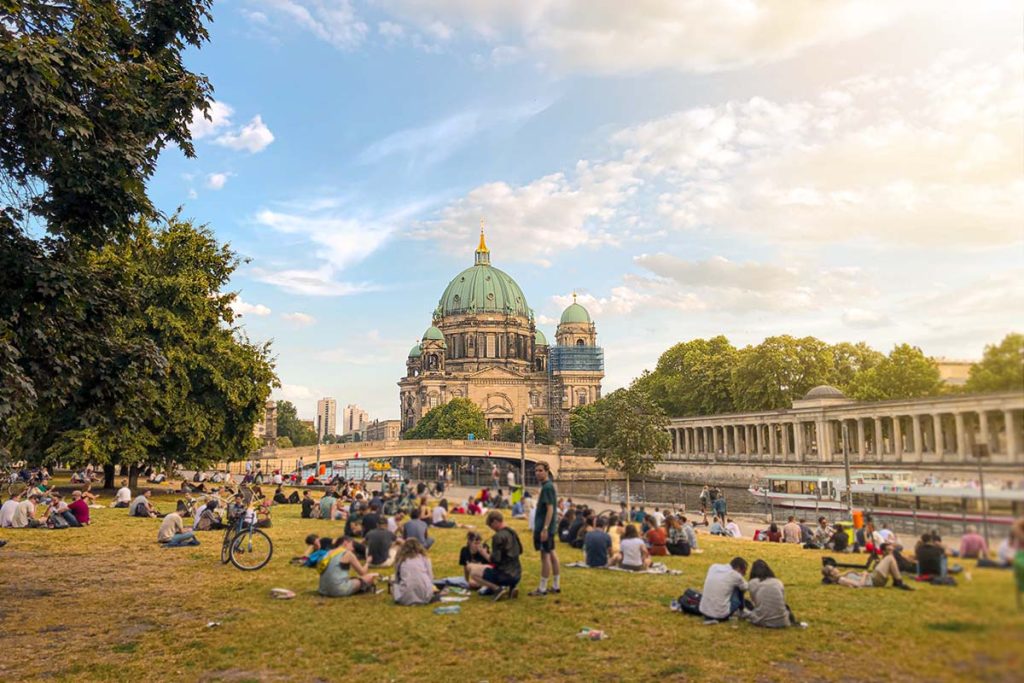Germany is a fantastic travel destination with a rich history, vibrant culture, and stunning landscapes. Here are some detailed travel tips to help you make the most of your trip:

1. Transportation in Germany
Public Transport (Trains, Buses, U-Bahn & S-Bahn)
-
Deutsche Bahn (DB) operates the ICE (InterCity Express) trains for fast travel between cities.
-
Regional trains (RE, RB, S-Bahn) are cheaper but slower.
-
U-Bahn (subway) and S-Bahn (urban trains) are available in major cities like Berlin, Munich, and Frankfurt.
-
Buses & Trams: Reliable and great for getting around within cities.
Money-saving tip:
-
Deutschlandticket (€49/month): Unlimited travel on all regional trains, buses, and trams.
-
Schönes-Wochenende-Ticket (Weekend Ticket): Cheaper travel on weekends across regional trains.
-
BahnCard 25/50/100: Discounts on train fares (25%, 50%, or 100%).
Driving in Germany
-
Autobahns often have no speed limit, but drive carefully—some areas have restrictions!
-
Rental cars require an international driving permit (IDP) if you’re from outside the EU.
-
Fuel is expensive, and parking in cities can be difficult.
Taxis & Ride-Sharing
-
Taxis are expensive; use Uber, FreeNow, or Bolt in major cities.
-
Many locals prefer public transport or bikes over taxis.
2. Accommodation Tips

Germany offers a wide range of accommodation options to suit all budgets and preferences. Major cities like Berlin, Munich, and Hamburg have plenty of hotels ranging from budget-friendly chains to luxurious five-star establishments, often best booked in advance, especially during peak seasons such as Oktoberfest or Christmas markets. For budget-conscious travelers, hostels are an excellent choice, providing affordable dormitory-style rooms and a social atmosphere. Airbnb is another popular option, particularly for those planning longer stays or seeking a more local experience. In smaller towns and rural areas, Gasthäuser (guesthouses) and Pensionen (family-run inns) provide a cozy and traditional stay, often including breakfast. If you’re an outdoor enthusiast, camping is widely available, with well-maintained campsites near forests, lakes, and the Alps. For road-trippers, Germany is also campervan-friendly, with many designated spots for overnight parking. No matter where you stay, it’s always a good idea to book early, especially in tourist hotspots, to secure the best rates and options.
3. Food & Dining Etiquette
German cuisine is diverse, hearty, and rich in regional specialties, making dining an enjoyable part of any visit. Traditional dishes like Bratwurst, Schnitzel, Sauerkraut, and Pretzels are widely available, while regions have their own unique specialties, such as Currywurst in Berlin, Weißwurst in Bavaria, and Black Forest Cake in the southwest. When dining out, it’s common to seat yourself in casual restaurants, while in more formal places, a host will guide you to a table. Tipping is customary, usually around 5-10%, and is given directly to the server rather than left on the table. Unlike in some countries, waitstaff won’t bring the bill unless requested, so ask for it by saying, “Die Rechnung, bitte” (the bill, please). Many restaurants and cafés prefer cash payments, especially in smaller towns, so carrying some euros is advisable. Additionally, Germans value efficiency and quiet dining, so excessive noise or lingering too long after a meal without ordering more is uncommon. Restaurant kitchens typically close early, around 9-10 PM, so late-night dining options may be limited. Following these dining customs will help ensure a smooth and enjoyable culinary experience in Germany.
4. Cultural & Local Etiquette
-
Germans value punctuality—don’t be late for reservations or meetings!
-
Quiet hours (Ruhezeiten): No loud noise (music, parties) after 10 PM in residential areas.
-
Jaywalking is frowned upon—always use crosswalks.
-
Recycling culture: Follow the waste separation rules; return plastic bottles to supermarkets for refunds (€0.25 per bottle).
5. Best Cities & Attractions

Germany is home to a variety of incredible cities and attractions, each offering unique cultural and historical experiences. Berlin, the capital, is a must-visit with landmarks like the Brandenburg Gate, Berlin Wall Memorial, Museum Island, and the vibrant street art scene in neighborhoods like Kreuzberg. In the south, Munich blends Bavarian traditions with modern attractions, boasting Marienplatz, Neuschwanstein Castle, and the world-famous Oktoberfest. For those drawn to maritime charm, Hamburg offers scenic harbor views, the stunning Elbphilharmonie, and the lively nightlife of Reeperbahn. The Rhine Valley captivates visitors with its fairytale castles, vineyard-covered hills, and charming riverside towns like Bacharach and Boppard. Nature lovers will appreciate the beauty of the Black Forest, known for its picturesque villages, cuckoo clocks, and scenic hiking trails. In western Germany, Cologne stands out with its magnificent Cologne Cathedral, while Heidelberg enchants visitors with its romantic old town and historic university. For outdoor adventure, the Bavarian Alps offer breathtaking mountain landscapes, with top destinations like Zugspitze, Königssee, and Berchtesgaden. Whether you’re interested in history, nature, or city life, Germany has an abundance of incredible places to explore.
6. Money & Budgeting
-
Currency: Euro (€)
-
ATMs (Geldautomat): Widely available; avoid high-fee exchange kiosks.
-
Budget for daily expenses:
- Budget: €50-70 (hostel, public transport, street food)
- Mid-range: €100-150 (hotel, casual dining, museums)
- Luxury: €200+ (fine dining, first-class trains)
8. Best Time to Visit

-
Spring (April–June): Mild weather, fewer tourists.
-
Summer (July–August): Warm, busy, great for beer gardens.
-
Autumn (Sept–Nov): Beautiful fall colors, Oktoberfest.
-
Winter (Dec–Feb): Magical Christmas markets, skiing in the Alps.
Germany has something for every traveler—whether you love history, nature, food, or nightlife. What cities or activities are you most interested in?
